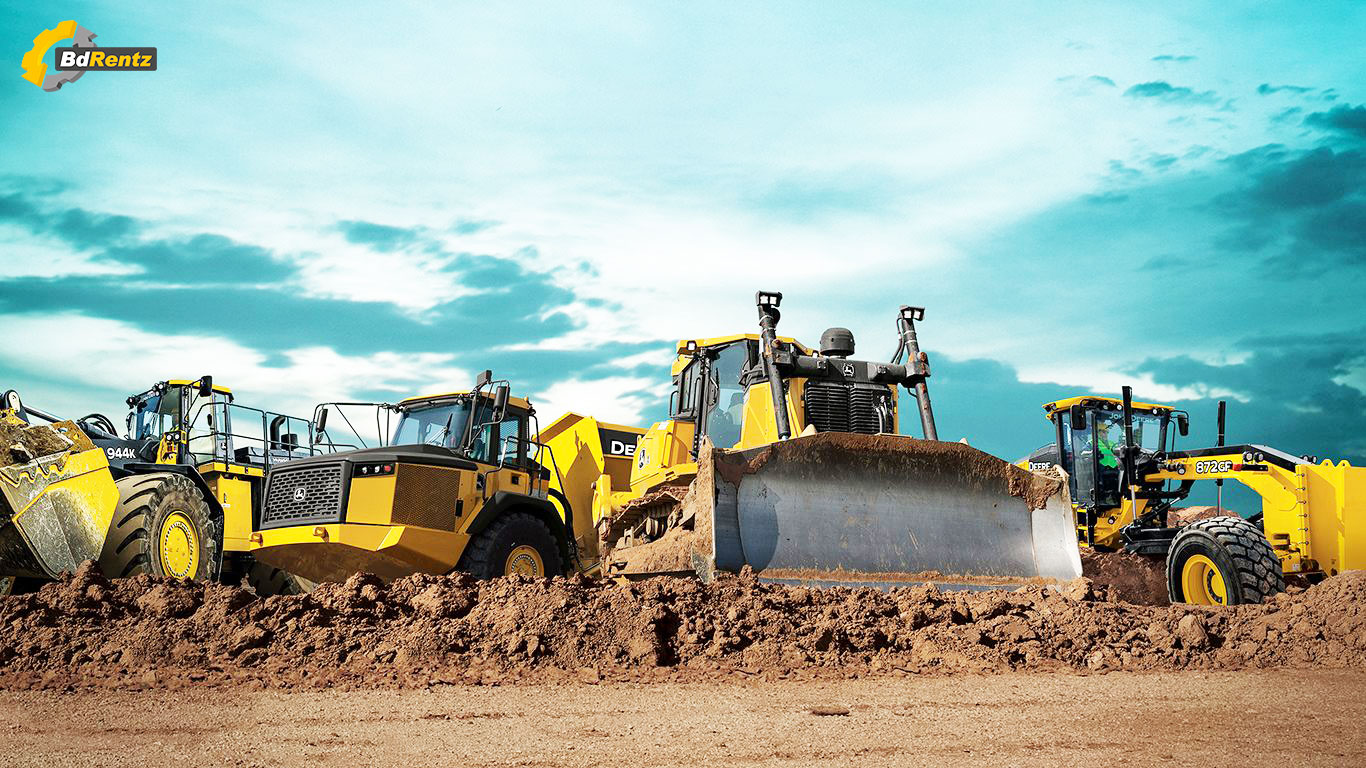Optimize Your Budget Plan by Understanding the Costs Connected With Construction Tools Leasings
Comprehending the full scope of prices linked with building equipment rentals is important for optimizing your spending plan. While the preliminary rental fee might seem uncomplicated, many additional expenditures-- such as transportation, fuel additional charges, and maintenance-- can quickly gather, affecting your financial preparation. Additionally, knowing various costs and the ins and outs of rental contracts can help avoid unexpected economic problems. What strategies can be utilized to efficiently handle these costs and guarantee a more effective rental experience?
Summary of Rental Costs
When taking into consideration building and construction equipment services, comprehending the connected costs is paramount for reliable budgeting and task planning. Rental costs can differ considerably based on numerous elements, including tools kind, duration of rental, and area. The initial rental cost usually mirrors the equipment's market need and its linked functional capacities, influencing the total expense.
In enhancement to the base rental price, ancillary expenses may develop, such as transportation charges, gas additional charges, and maintenance fees. It is important to make up these extra expenditures to properly evaluate the complete cost of leasing tools. Moreover, the rental duration can impact prices; longer services may get approved for affordable rates, while short-term services might sustain higher day-to-day fees.

Break Down of Rental Rates
A detailed understanding of rental rates is crucial for service providers and task supervisors intending to optimize their budget plans. Rental prices for construction equipment typically contain a number of elements, consisting of base prices, time-based costs, and usage fees.
Base rates are the core charges connected with the service of the devices, commonly figured out by the kind and size of the equipment. These prices can differ dramatically, affected by factors such as tools need, accessibility, and regional market patterns. Time-based costs, which might be daily, weekly, or monthly, serve to suit different project timelines and rental durations.
Furthermore, rental rates may consist of use fees, which are applicable when tools is made use of beyond a defined threshold, guaranteeing that the rental company can make up wear and tear. Seasonal demand variations can likewise influence rental rates, with peak building and construction seasons commonly commanding higher costs.
In addition, comprehending the rental firm's policies concerning maintenance and insurance coverage can provide further understanding into the total expense framework. By evaluating these parts, specialists can make educated decisions, ensuring the option of rental devices aligns with both task demands and budget restrictions.
Additional Charges to Think About
Comprehending the details of additional fees is important for professionals to handle their general service costs effectively. Beyond the standard rental prices, numerous extra costs can significantly influence the overall expense of equipment leasing. These charges often include distribution and pickup fees, which can vary based on range and logistics associated with carrying the tools to and from the work site.
In addition, some rental companies might enforce fuel surcharges if the equipment is returned with less fuel than when rented out. It is also necessary to be conscious of possible cleaning charges, particularly for customized tools that calls for complete maintenance i was reading this after usage.

Thoroughly reviewing the rental contract and clearing up these extra costs upfront can help service providers make certain and stay clear of unexpected costs that budgets remain intact throughout the job lifecycle.
Upkeep and Repair Expenses
Routine maintenance and repair work expenditures are typically neglected variables that can considerably affect the overall expense of building and construction equipment leasings. When renting out equipment, it is vital to consider not just the rental costs but likewise the prospective costs related to keeping the machinery in ideal operating problem.
Several rental companies consist of fundamental upkeep as part of the rental contract; however, more comprehensive repair services or unexpected breakdowns can lead to added expenses. It's vital to review the rental contract thoroughly to recognize what upkeep services are covered and what obligations fall on the occupant.
Furthermore, devices that is not properly maintained can lead to inadequacies on the work website, potentially creating hold-ups and increasing task costs. To minimize these risks, it is a good idea to perform regular evaluations and preserve open communication with the rental supplier regarding any type of issues that arise during usage.
Insurance Coverage and Liability Expenses
Insurance coverage and obligation prices are crucial parts that can dramatically affect the total expense of building devices rentals (aerial lift rental). These costs make certain that both the rental firm and the customer are secured from prospective financial losses emerging from accidents, damages, or theft during the rental duration

In addition, customers should understand any kind of deductibles or exemptions in the insurance plan, as these can impact potential out-of-pocket expenses. Understanding the terms and problems of any type of insurance policy coverage is crucial to prevent unanticipated expenses. Eventually, budgeting for insurance policy and liability costs can help make certain a smoother rental experience and safeguard versus monetary threats connected with construction tasks.
Final Thought
In conclusion, a thorough understanding of the prices associated with construction equipment rentals is necessary for reliable budget management. Eventually, notified decision-making pertaining to tools services contributes to the general success of building undertakings.
Rental prices can differ significantly based on numerous elements, including equipment type, period of rental, and location (construction equipment rentals). The rental period can impact rates; longer leasings might certify for discounted prices, while temporary rentals could incur greater everyday charges
By performing detailed research study and engaging with respectable rental business, contractors can effectively browse the complexities of rental pricing, inevitably optimizing their monetary resources.
Past the basic rental rates, various supplementary charges can significantly affect the overall expense of devices leasing. Rental companies often give liability insurance that covers injuries to third parties or damage to building, while equipment damage insurance coverage can cover the cost of repair work or substitute if the rented devices is harmed.